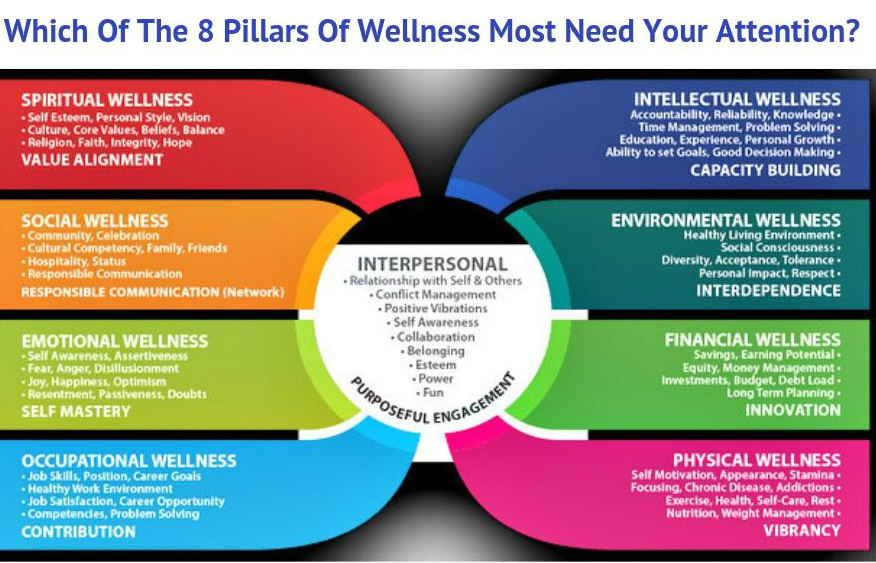Discover the five key components of holistic health—physical, emotional, mental, social, and spiritual well-being. Learn how they interconnect to create a balanced, healthy life in this detailed guide.

Table of Contents:
- Introduction to Holistic Health
- The Five Parts of Holistic Health
- Physical Health
- Emotional Health
- Mental Health
- Social Health
- Spiritual Health
- How to Integrate the Five Parts of Holistic Health
- The Benefits of a Holistic Approach to Health
- FAQs on Holistic Health
- Conclusion: Achieving Balance Through Holistic Health
1. Introduction to Holistic Health
Holistic health is an approach to wellness that considers the whole person—mind, body, spirit, and emotions—in the quest for optimal health and wellness. Rather than just focusing on the absence of disease, holistic health emphasizes balance in all aspects of life. This comprehensive approach ensures that every part of an individual’s life is supported and nurtured, leading to overall well-being.
2. The Five Parts of Holistic Health
Physical Health
Physical health is the foundation of holistic health. It includes maintaining a healthy body through regular exercise, a balanced diet, adequate sleep, and preventative measures like regular check-ups and vaccinations. Physical health also involves listening to your body and taking care of any health issues before they become serious.
Emotional Health
Emotional health involves understanding and managing your emotions in a positive way. It includes self-awareness, resilience, stress management, and the ability to cope with life’s challenges. Emotional well-being is crucial for overall health, as it affects how we feel, think, and behave.
Mental Health
Mental health is closely linked with emotional health but focuses more on cognitive processes. It involves maintaining a healthy mindset, cultivating positive thoughts, and practicing mental exercises like mindfulness and meditation. Mental health also includes learning and intellectual growth, which contribute to a sharp and engaged mind.
Social Health
Social health refers to how well you interact with others and maintain relationships. It involves developing healthy, supportive relationships and contributing to your community. Good social health can improve your mental and emotional well-being, providing a network of support during tough times.

Image Credit/https://askthescientists.com/
Spiritual Health
Spiritual health is about finding purpose and meaning in life. It doesn’t necessarily involve religion; it can also include a sense of connection to the universe, nature, or a higher power. Spiritual health fosters inner peace, compassion, and a sense of fulfillment, guiding you in making decisions that align with your values.
3. How to Integrate the Five Parts of Holistic Health
Integrating these five aspects into your daily life involves conscious effort and practice. Here are some strategies:
- Physical Health: Regular exercise, balanced diet, and sleep hygiene.
- Emotional Health: Journaling, therapy, and stress management techniques.
- Mental Health: Meditation, continued learning, and mental exercises.
- Social Health: Building and maintaining strong relationships, participating in community activities.
- Spiritual Health: Practicing mindfulness, meditation, or exploring personal beliefs.
4. The Benefits of a Holistic Approach to Health
A holistic approach to health offers numerous benefits, including:
- Improved Physical Well-being: Better physical health through balanced diet and regular exercise.
- Enhanced Emotional Resilience: Greater ability to manage stress and emotional challenges.
- Sharper Mental Acuity: Improved cognitive function and mental clarity.
- Stronger Relationships: More fulfilling and supportive social connections.
- Greater Life Satisfaction: A deeper sense of purpose and fulfillment.
5. FAQs on Holistic Health
Q1: What is holistic health? A1: Holistic health is an approach that considers the whole person—body, mind, emotions, and spirit—rather than just treating specific symptoms or diseases.
Q2: Why is spiritual health important in holistic health? A2: Spiritual health provides a sense of purpose and meaning, contributing to overall well-being and guiding you in making life choices aligned with your values.
Q3: How can I improve my social health? A3: Improving social health involves building strong, supportive relationships, participating in community activities, and maintaining healthy communication with others.
Q4: What are some examples of practices that support mental health? A4: Practices like meditation, mindfulness, continued education, and cognitive exercises support mental health by keeping the mind engaged and balanced.
Q5: Can holistic health help with chronic conditions? A5: Yes, holistic health can complement traditional treatments by addressing the physical, emotional, mental, and spiritual aspects of chronic conditions, leading to better overall management.

Image Credit/https://www.hypnotic-downloads.com/
6. Conclusion: Achieving Balance Through Holistic Health
Holistic health is about more than just the absence of illness; it’s about achieving balance and harmony in all areas of life. By nurturing your physical, emotional, mental, social, and spiritual well-being, you can create a more fulfilling and healthier life.
